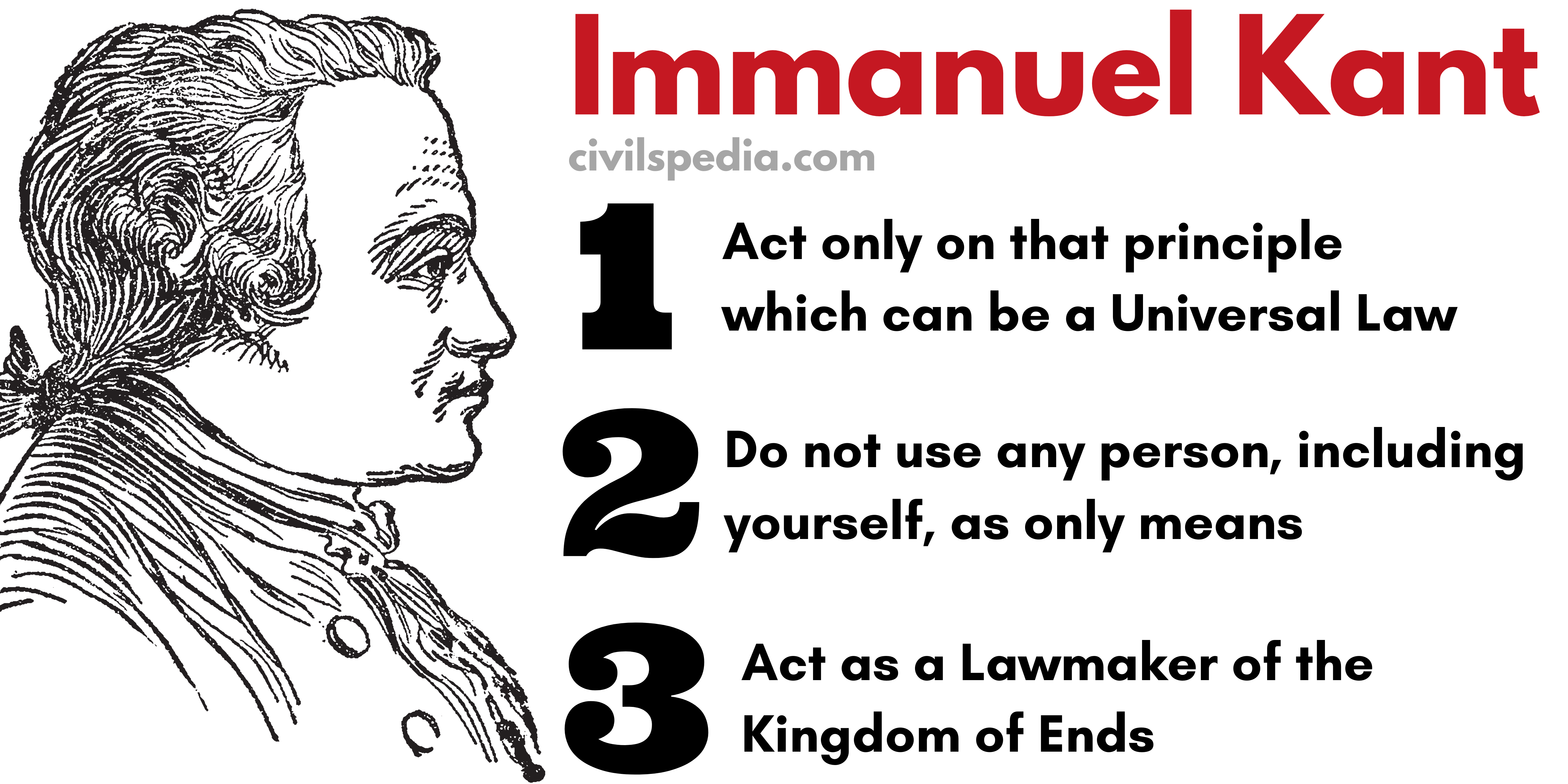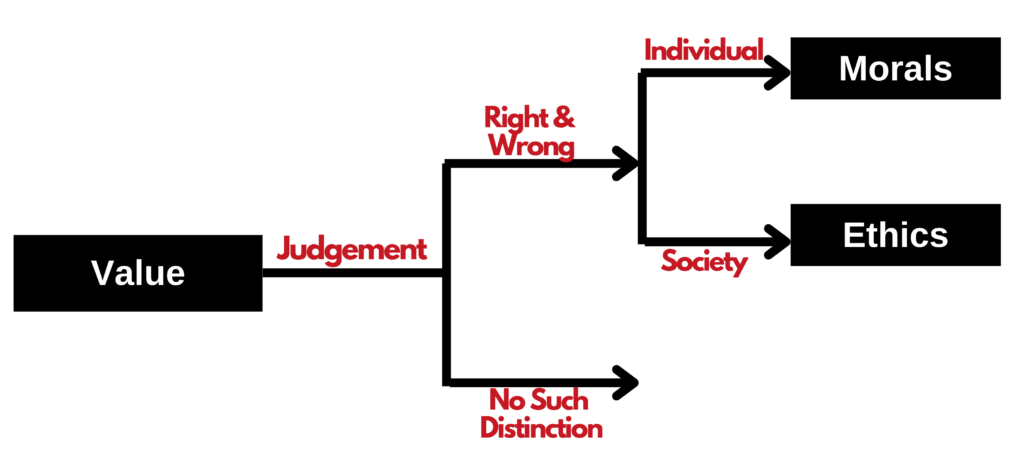Deontological Ethics (UPSC Notes)
This article deals with the topic titled ‘Deontological Ethics (UPSC Notes).’ This is part of our series on ‘Ethics’. For more articles, you can click here.
What is Deontological Ethics?

- Deontological Ethics is also known as Kantian Ethics or Duty-Based Ethics.
- Under Deontological Ethics, right & wrong is determined based on the MEANS & the end result is immaterial here.
- Deontological ethics holds that individuals have certain moral duties and obligations, even if it produces a bad result. These duties include “do not lie,” “do not steal,” or “do not harm others.” So, for example, the philosopher Kant opined that it would be wrong to lie to save a friend from a murderer.
- According to Kant, the Dignity of every individual is an important value & it should be used as a criterion for judging right & wrong. He argued, “Every individual should be treated as an end in himself & shouldn’t be treated as means to some end.”
- The intention is also crucial in Deontological Ethics. It is seen whether an act is carried out with good or bad intentions. If good work is done with bad intentions, then actions are unethical.
- Instances where human beings are treated as means to some other ends are
- Surrogacy
- Clinical Trials
- Consumerism (MNCs use common people as a means to maximize their profits)
- Mahatma Gandhi, too, has emphasized a lot on means as an ethical aspect. According to Gandhi, means should be equally pious & moral as that of the end.
- The Hindu philosophy of Nishkama Karma that argues for doing one’s duties without expectation of fruit is in line with Deontological Ethics /Duty Based Ethics.
- Deontological or duty-based ethics motivates work, even when the result is uncertain or far away. e.g. Lord Krishna advised Arjun to fight in the war against the Kauravs.
Critiques of Deontological Ethics
- Lack of Consideration for Consequences: Deontological ethics neglect the importance of consequences of actions. Hence, it fails to address situations where a morally right action could lead to negative outcomes or where morally wrong actions could result in positive consequences.
- Conflict of Moral Rules: Deontological ethics may encounter challenges when moral rules or duties come into conflict with one another.
- Lack of Flexibility: Deontological ethics is criticized for its rigid adherence to moral rules, which may not account for the complexities and nuances of real-life situations.
Kant
Immanuel Kant was a renowned German philosopher who significantly contributed to various fields, including metaphysics, epistemology, and ethics.
Categorical Imperative

Kant lays down the following rules of conduct to make the moral law i. e. the Categorical Imperative more definite
- Act only on that principle which can be a Universal Law: Kant says that one should act in such a way as you could wish that everyone else should act in the same way. For example
- Breaking promises: The act is wrong because it cannot be universalized. If everyone breaks a promise, no one can make any promise.
- Suicide: If everyone commits suicide in despair, no one would be left to commit suicide.
- Theft: Theft is wrong because if everyone else resorts to such activity, it will create chaos.
- Do not use any person, including yourself, as only means: This maxim holds that a person should be treated as an end in itself and not as a means to some ends. Man is essentially a rational being, and the rational nature is an end and has absolute value.
- Act as a Lawmaker of the Kingdom of Ends (Autonomy of Morality): Everyone in this kingdom is sovereign (i.e. imposes moral law upon himself) and subject (i.e. he obeys the moral law imposed by himself) at the same time.
Complete Good: Virtue & Happiness
- Kant believes that virtue is the supreme good but not the complete good.
- The complete good consists of the association of virtue with happiness.
- Virtue depends upon goodwill within our control. Happiness depends upon external circumstances which are beyond our control. Virtue does not include happiness, nor does happiness include virtue. The harmony of virtue and happiness is brought about by God.
Leadership
A leader should
- Cultivate autonomy and self-determination in themself and in followers
- “Act as if one were a member of an ideal kingdom of ends in which one was subject and sovereign simultaneously.”


















